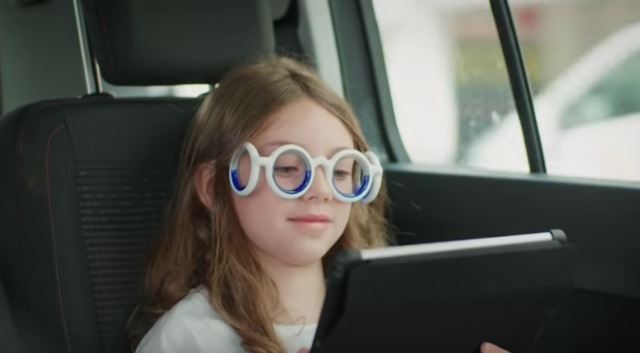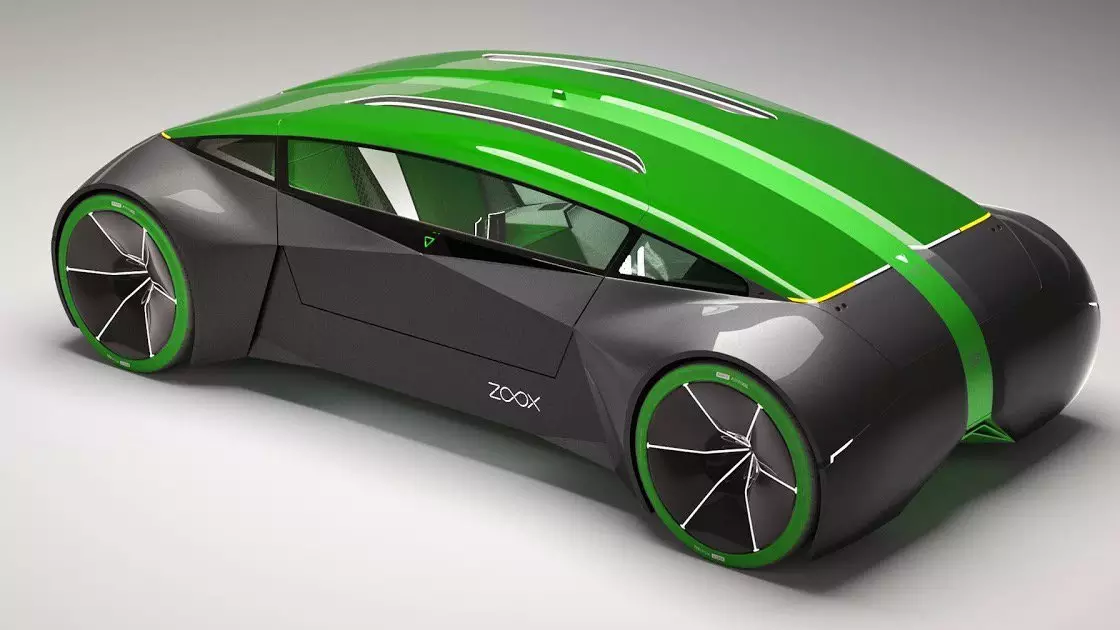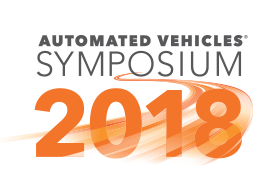The death of parking services has already begun
Submitted by brad on Wed, 2018-08-08 13:40
I've written a lot about parking, most notably my
Brad Templeton is Chairman Emeritus of the EFF, Singularity University founding computing faculty, software architect and internet entrepreneur, robotic car strategist, futurist lecturer, photographer and Burning Man artist.
This is an "ideas" blog rather than a "cool thing I saw today" blog. Many of the items are not topical. If you like what you read, I recommend you also browse back in the archives, starting with the best of blog section. It also has various "topic" and "tag" sections (see menu on right) and some are sub blogs like Robocars, photography and Going Green. Try my home page for more info and contact data.

I've written a lot about parking, most notably my
Waymo recently announced two new partnerships for their fleet of robotaxis.

The first was with Walmart. Walmart has installed special parking spots in their lots, and will offer people free rides to Walmart to pick up online orders. Only some of the 400 Waymo "Early Riders" will participate, at first.
 Recently the TSA indicated it is once again considering having no security on planes under 60 seats at small airports. This is controversial, of course, but many security experts think it is the right course for a number of reasons:
Recently the TSA indicated it is once again considering having no security on planes under 60 seats at small airports. This is controversial, of course, but many security experts think it is the right course for a number of reasons:
 When I get off planes in San Francisco and summon a Lyft or Uber, I usually have to wait 8 to 10 minutes. That's because the airport has forced these companies to force drivers to wait in the "cell phone waiting lot" which is quite far from the terminal. When I don't have checked bags, it's OK because I know this and I summon the car while walking out of the gate, but with bags I have to wait for my bag before I can summon.
When I get off planes in San Francisco and summon a Lyft or Uber, I usually have to wait 8 to 10 minutes. That's because the airport has forced these companies to force drivers to wait in the "cell phone waiting lot" which is quite far from the terminal. When I don't have checked bags, it's OK because I know this and I summon the car while walking out of the gate, but with bags I have to wait for my bag before I can summon.
Tesla announced it has built its own custom neural network processor to use in Autopilot 3.0 in 2019.
 Tesla started mainly using MobilEye's vision chip, but that relationship ended after the first fatality. They have since been using NVIDA GPUs in Autopilot 2.0 and now plan to use their own ASIC.
Tesla started mainly using MobilEye's vision chip, but that relationship ended after the first fatality. They have since been using NVIDA GPUs in Autopilot 2.0 and now plan to use their own ASIC.
The idea that sharing rides is good has become almost axiomatic in transportation discussions. At conferences I have seen people declare that robocars are pointless if they are not shared -- ie. people who are not travelling together ride together in them. The positive of sharing is so axiomatic that public transit is seen almost as a good in and of itself, rather than a means towards real goals like energy efficiency, low cost, and higher road utilization.


Uber made a strange announcement this week, that they are back on the road in Pittsburgh, when they actually aren't.
 For a lot of people, being a passenger in a car can easily lead to motion sickness, particularly if they try to do something like looking down to read a book or stare at a phone. Not everybody gets this, but it's enough to be a big issue for the robocar world. Drivers usually don't feel this much, but in the robocar world, everybody's a passenger.
For a lot of people, being a passenger in a car can easily lead to motion sickness, particularly if they try to do something like looking down to read a book or stare at a phone. Not everybody gets this, but it's enough to be a big issue for the robocar world. Drivers usually don't feel this much, but in the robocar world, everybody's a passenger.
Recently, robocar start-up Zoox came a little out of stealth with this Bloomberg piece and you can also watch a video demonstrating their perception system at work.

In discussion of the eventual cost of a robotaxi ride, I and others have forecast costs similar to the all-in cost of car ownership. Today that's 40 to 60 cents/mile (plus parking) and for a one person electric "city car" it can be under 20 cents. Note that in building these costs I am looking at the full retail cost today including:

I was asked by the New York Times to comment on what future city transportation plans should look like. In a short piece, they could not repeat all I said, so I will expand a bit here.
My main advice to cities is that nobody, including myself, has the exact answer on how transportation will look in 2030 or beyond. (They are making plans for 2030 and even 2040 now.) Because we can't know, my advice is to design to be flexible. Design to be able to change your mind.
 When doing a road trip, I like to have a cooler in the back of the car. This lets you have cold drinks and snacks, and also means you can shop for things that need refrigeration, particularly things like cheese in Europe. You can buy groceries at any convenient time, even if you won't get to your hotel until later in the day.
When doing a road trip, I like to have a cooler in the back of the car. This lets you have cold drinks and snacks, and also means you can shop for things that need refrigeration, particularly things like cheese in Europe. You can buy groceries at any convenient time, even if you won't get to your hotel until later in the day.
Another big plus, when you stay in hotels that have no fridge, is that you get an in-room (literal) icebox.
Yesterday I wrote about the future of group tourism and made reference to the tourist robocar.
I hate tour groups. I hate the very rare times I am part of one, and I hate encountering them at tourist locations. And with few exceptions, I suspect most people also hate several aspects of them, other than perhaps when it's a group of family or friends. Like so much of the tourist world, I think there is immense room for improvement thanks to new communications and transportation technology.


For the second year at the Automated Vehicles Summit, we held a "Shark Tank" where there were 4 pitches on controversial ideas in robocars, and the 4 sharks (including myself) and the audience debated them. While these breakout sessions are on Chatham House Rules, I can certainly outline my own views.
Day two of AUVSI/TRB Automated Vehicle Summit
Simulation and other studies were done by Boston Consulting Group for the World Economic Forum. Their study contains some interesting conclusions about shifts in urban traffic in several cities.
The AUVSI/TRB "Automated Vehicles Summit" kicked off this morning with a report from JD Power on consumer attitudes. I am very skeptical of all such surveys. They seem as useful as a survey from 2005 about what people would do with the iPhone after it comes out in 2 years. Such a survey would surely have reported almost nobody planned to get one or would use it in the ways people actually do.
The Tempe police released a detailed report on their investigation of Uber's fatality. I am on the road and have not had time to read it, but the big point, reported in many press was that the safety driver was, according to logs from her phone accounts, watching the show "The Voice" via Hulu on her phone just shortly before the incident.
Congress shall make no law, abridging the right of franchise of adult citizens of the United States, nor make any law affecting the exercise of franchise in a significant disproportionate way by supporters or opponents of any candidate, ballot question or aligned group of candidates, or members of any protected class of citizens (including but not limited to the ethnic groups, religions, sexes, income levels and sexual orientations.)
In my article about how advertising won't pay for robotaxi rides I hinted at one surprise source of the problem. Maybe advertising can never be very valuable.

Right now, the most popular type of advertising, makes about 60 cents for one hour of TV watching. This is with what's known as a $20 CPM (cost per thousand.) Thats 2 cents per ad shown to a person, and an hour of TV has around 15 minutes of ads, or 30 spots.
Copyright © 2025, Brad Ideas
Designed by Zymphonies
